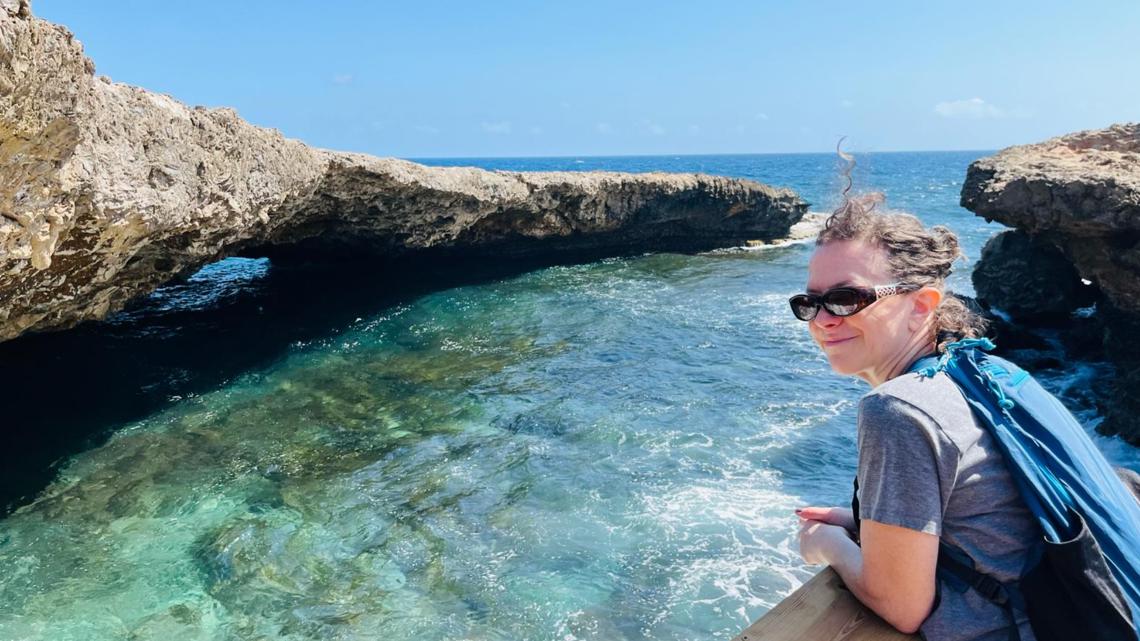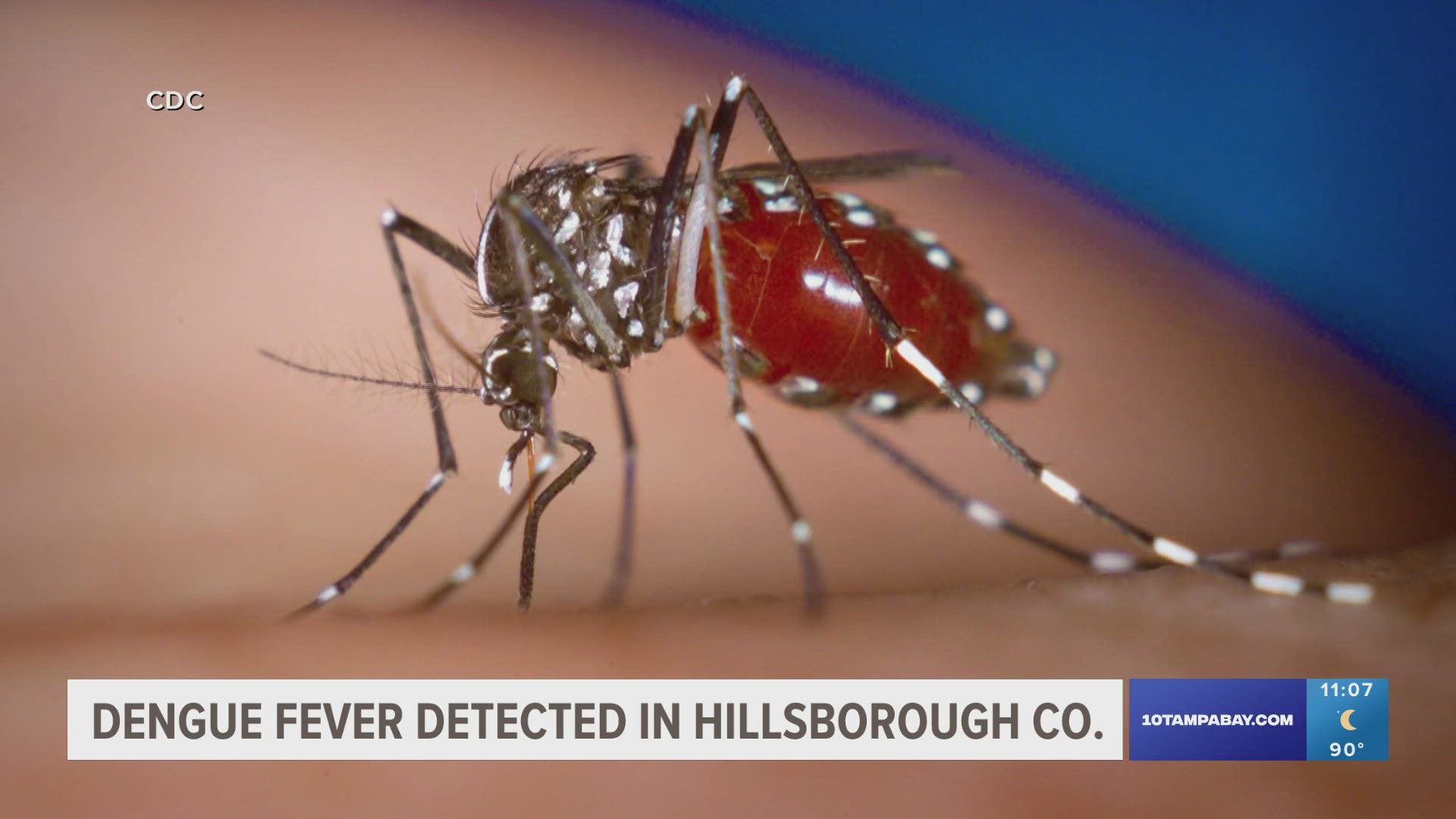TAMPA, Fla. — Health officials have announced a confirmed case of dengue fever in Hillsborough County.
Dengue fever is a viral infection that spreads from mosquitoes to people, according to the World Health Organization (WHO).
At this time, DOH-Hillsborough and Hillsborough County Mosquito Control are conducting aerial spraying to help prevent the spread of the viral infection, The Florida Department of Health in Hillsborough County said in a news release.
DOH-Hillsborough is also advising people within the county to avoid being bitten by mosquitoes, according to the release.
The recent case marks the second locally acquired case in the Tampa Bay region. In Pasco County, data this year from the Centers for Disease Control and Prevention reported at least one other similar case.
Travel-associated cases are more common, which is why those like Dr. Jill Roberts of USF Public Health are advising Floridians to take common precautions one normally would take during mosquito season.
"What that says to me is that we have to be very careful that we're doing correct mosquito control," she said.
Steps like draining water in areas like kiddie pools or old tires, covering with clothing, and using insect repellents can also reduce the risk of contracting mosquito-borne illnesses.


Those like Dr. Deborah Heaney got dengue fever after a trip to Curacao earlier this year. Her symptoms included extreme fever, body pain, weakness and blotches all over her skin.
"It was a little bit of a helpless feeling for a healthcare professional, for sure," she said.
She recently shared her own experience through the New York Times in the guest essay titled, "I'm a Doctor. Dengue Fever Took Even Me by Surprise on Vacation."
She told 10 Tampa Bay she hopes her story encourages others, including the public to be aware of where they're traveling and to be cognizant of the risks they take.
"People need to protect themselves because by protecting themselves, they're also protecting others," Heaney said.
WHO says common symptoms of those with dengue fever are as follows:
- High fever
- Headache
- Body aches
- Nausea
- Rash
While most people who are infected get better in 1-2 weeks, WHO says some people can develop severe dengue and be hospitalized.
In fact, in some cases, dengue can be fatal, according to WHO.
Common symptoms of severe dengue are as follows, according to WHO:
- Severe abdominal pain
- Persistent vomiting
- Rapid breathing
- Bleeding gums or nose
- Fatigue
- Restlessness
- Blood in vomit or stool
- Being very thirsty
- Pale and cold skin
- Feeling weak
While there is no specific treatment for dengue, the organization says the infection is usually treated with pain medicine.
For more information about the health alert in Hillsborough County, visit DOH-Hillsborough's official website.

